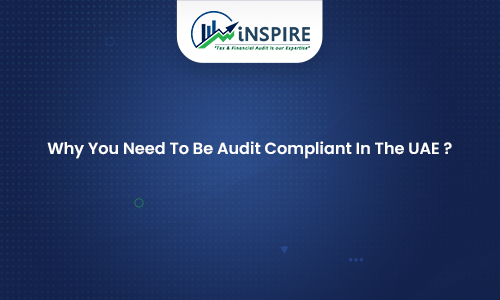
Here’s Why You Need To Be Audit Compliant In The UAE
External audits are a legal requirement in the UAE for companies and organizations to have their financial statements assessed. These audits are carried out by third-party auditors who are authorized and licensed by the UAE government. Compliance with external audit regulations is crucial as it guarantees the precision, dependability, and openness of financial reporting. This article will detail the requirements for external audit compliance in the UAE.
In the United Arab Emirates (UAE), external audits are conducted to assess the financial statements of a company or organization. These audits are typically conducted by an independent third-party auditor who is authorized and licensed by the UAE government.
External audit compliance is essential to ensure the accuracy, reliability, and transparency of financial reporting. This article will discuss the external audit compliance requirements for external audits in the UAE.
Audit Regulations in the UAE
The UAE government has established several regulatory bodies to ensure the quality and integrity of external audits. The most prominent regulatory body is the Ministry of Economy, which oversees the licensing and registration of auditors in the UAE. The ministry also enforces the UAE Federal Law No. 2 of 2015 on Commercial Companies, which requires all companies in the UAE to maintain proper accounting records and to prepare financial statements in accordance with the International Financial Reporting Standards (IFRS).
Additionally, the Securities and Commodities Authority (SCA) oversees the regulation of companies listed on the UAE stock exchange. The SCA has established rules and regulations that require listed companies to comply with certain reporting standards and to undergo regular external audits.
External Audit Compliance Requirements
To ensure compliance with external audit regulations in the UAE, companies must adhere to certain requirements. These requirements include:
Appointing an external auditor: UAE companies are required to appoint an external auditor to conduct an annual audit of their financial statements. The external auditor must be licensed and registered with the Ministry of Economy.
Providing access to information: Companies must provide the external auditor with access to all relevant information, records, and documents required to conduct the audit. This includes financial statements, accounting records, and other supporting documents.
Complying with accounting standards: Companies must prepare their financial statements in accordance with the IFRS. The external auditor will review the financial statements to ensure compliance with these standards.
Providing accurate and reliable information: Companies are responsible for providing accurate and reliable information to the external auditor. This includes disclosing all relevant financial information and ensuring that all transactions are recorded accurately.
Cooperating with the external auditor: Companies must cooperate fully with the external auditor throughout the audit process. This includes responding to requests for information and providing access to company personnel.
Penalties for Non-Compliance
Non-compliance with external audit regulations in the UAE can result in severe penalties. The Ministry of Economy may revoke the license of an auditor who fails to comply with regulations, and companies may be fined or have their licenses suspended or revoked if they fail to comply with audit requirements. Additionally, companies may face legal action if they provide false or misleading information to the external auditor.
Conclusion
External audit compliance is crucial to ensuring the accuracy, reliability, and transparency of financial reporting in the UAE. Companies must adhere to certain requirements, such as appointing an external auditor, providing access to information, complying with accounting standards, providing accurate and reliable information, and cooperating with the external
auditor. Failure to comply with these regulations can result in severe penalties, including fines and license revocation. Companies should prioritize external audit compliance to maintain the integrity of their financial reporting and to avoid legal and financial consequences.











